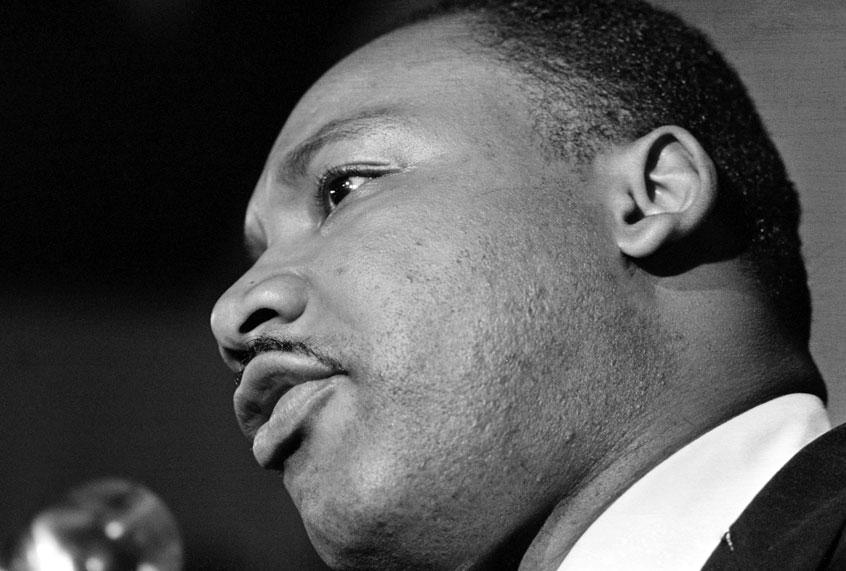This MLK weekend our nation’s atmosphere is markedly different than ten short years ago. Ten years ago, President-elect Barack Obama celebrated by volunteering at a non-profit specializing in providing a haven and stability to homeless teens. The next day, Obama became President and King’s dream seemed a significant step closer to becoming America’s reality. For a moment, hope and optimism harmonized. That time is no longer.
It is easy to wonder how to hold on to hope for King’s dream of racial and economic equity in an age at war with both. Celebrating King’s legacy is complicated and confusing when, as Ibram X. Kendi word-smithed it: “Racial progress is real. But so is racist progress.” For many, melancholy replaced optimism. Yet perhaps there is meaningful hope in this melancholy; perhaps this melancholy can revitalize the lost legacy of how King’s hope remained true even after it lost its optimism.
King was intimate with mountaintop moments when hope and optimism harmonized. Throughout the early years of his labors, King believed in America’s ability to change; believed that the righteous, self-sacrifice of African Americans would inspire white Americans to repent for the nation’s racist ways.
When he spoke of his Dream on the Mall in Washington, King was already a veteran of the struggle and familiar with the suffering his dream demanded, yet nonetheless the melodious harmony between hope and optimism seemed justified. King saw, with tantalizing clarity, a future seemingly within arm’s reach where the nation’s conviction “that all men are created equal” initiated a revolutionary pursuit of racial and economic equity. And, indeed, in meaningful ways, the movement’s self-sacrifice and dreams ushered racial and economic progress. Over the next two years, legislation banning discrimination and fighting poverty began ripping through Congress at historic rates. Access to voting increased and poverty decreased.
Yet, in the very midst of this historic progress, old wounds and racist ways of thinking exploded, entrenching racial and economic inequalities all the deeper. Race riots lit by long-held rage over brutal discrimination burst black communities into flames, and white backlash inspired by the civil rights legislation began radicalizing racist voting patterns among dis-eased whites. When King aimed to address northern styled segregation and close economic gaps for the working poor by demanding capitalism to negotiate with human dignity, repeated failure replaced repeated victories. With the nation in flames and his movement out of water, King then watched as Vietnam ate up America’s mind, bodies and spirit. The Samson of the Civil Rights struggle was, so to speak, going bald, and King watched his dreams begin to descend into a nightmare.
King’s commitment to non-violence and his dream of all of God’s children holding hands and singing Negro spirituals seemed out of tune with the passions of the day. Hope and optimism no longer harmonized. Our nation had heard King, hoped in King, and soon rejected King. Only aims and methods the smallest minds deemed possible seemed realistic and America’s smallest thinking on racial and economic equity quickly recaptured its political might.
It is tempting to forget King’s failures or to believe our nation aligns more tightly with his dream than what the evidence indicates. If we limit our memories to how King changed our nation, we lose the lessons from his life when the struggle was reduced to vanity and how his failures highlight the unfinished nature of his fight. If King had something to say to our nation at the height of his power and influence, how he held onto hope after his power waned proves equally important. His life continued to preach. And it is a sermon that we desperately need to hear.
In King’s final years, he was better positioned to see dark truths our nation attempted to hide. And he also saw that our nation failed to mature because we too often chose not to change — not because change was impossible. That insight only made his pain worse and it made his hopes more poignant. King came to embody a deeper hope Joseph Winters articulates in “Hope Draped in Black: Race, Melancholy, and the Agony of Progress.” King pivoted from articulating a vision of how to embody America’s exceptionalism to more clearly expressing America’s addiction to the “triple evils of racism, economic exploitation, and militarism” that warred against America’s humanity. And in clearly articulating America’s addictions, King worked to prepare the ground to receive hopes America was not yet ready to imagine.
Over the past few years, I read King’s writings and listened to his speeches during his years of disillusionment. What struck me in this era was how his disillusionment with America’s addictions neither discombobulated nor tamed his moral vision or his hopes. His vision for our nation refused to conform to the compromises of the day and in the darkness his vision grew clearer. He mourned and held our nation accountable for her addictions and decisions that took the nation in the wrong direction. Yet King continued dream through the nightmare and, in the shadow of death’s valley, rather than bending he embraced the cost of living in harmony with the promise-land he saw from the mountaintop.
How do we remember King and hold to hope in his dream after our optimism has faded but America’s addiction to racism, economic exploitation, and war hasn’t? We need to remember that as King’s optimism waned, his hope was not tamed. King was not always an optimist, but he was a man of Christian conviction and believed all people were God’s children. As we remember King, may we mourn our decision to reject so much of what he had to say but may we never lose site of the power of dreaming through the nightmare. As King reminded us on his last night, “I know, somehow, that only when it is dark enough can you see the stars.”


